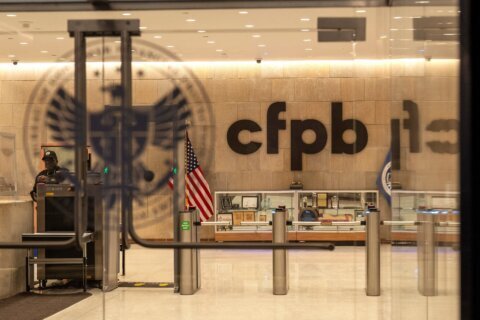It may be a new year. But for investors, consumers and the Federal Reserve, inflation remains a major economic concern, just as it was in 2022.
With that in mind, Wall Street will intensely scrutinize the December Consumer Price Index data for December that is set to be released Thursday. The hope is that the pace of price increases will continue to slow.
Consumer prices rose 7.1% year over year through November. That is still a historically high increase, but it’s a notable drop from the peak price increases of 9.1% back in June. It was also the smallest gain since December 2021’s 7% annual jump in prices.
The hope is that inflation pressures will cool even more dramatically as the year progresses. It’s probably a pipe dream to expect that price increases will fall anytime soon to the 2% to 3% annual level that the Fed would feel most comfortable with. But as long as CPI keeps falling, the market will probably cheer.
“Inflation will continue to roll over. We believe inflation peaked in June,” said Nancy Tengler, CEO and chief investment officer with Laffer Tengler Investments, in a report.
Tengler added that “the rise and fall of inflation is mostly symmetrical. It took 16 months to peak and now we expect it will take a like amount of time to get to a tolerable level.”
Any further slowdown in the pace of inflation would be good news for average Americans but also for Corporate America. That’s because profits should get a boost as commodities expenses ease.
“With a year of higher inflation under their belts, we expect the headwinds of inflationary pressures to become tailwinds as companies start to see deflation in input costs. Margins are likely to hold up better than the overall market expects,” said Brett Ewing, chief market strategist with First Franklin, in a report.
Inflation impact on the Fed and housing
What’s more, lower levels of inflation should allow the Fed to keep slowing its pace of interest rate hikes. Traders are hoping for just a quarter-point increase from the Fed next month … and are betting that the Fed will eventually stop hiking rates later this year.
Growing expectations for a Fed pause have boosted the chances that the US economy may be able to avoid a deep and prolonged recession. Many experts still think that a brief and shallow downturn is likely. But that will depend on just how aggressive the Fed decides to be with rate hikes.
“The Fed could blink and acquiesce to a 3% to 4% inflation rate ‘for the time being,’ in which a soft landing might be possible,” said Bob Doll, chief investment officer of Crossmark Global Investments, in a report.
That would also be welcome news for people still looking to buy a home.
Worries about rising mortgage rates (along with sky-high housing prices in many markets) have raised fears of another residential real estate crash like the one in the late-2000’s. But if inflation pressures continue to abate — and the Fed acknowledges that by pulling back on rate hikes — then the housing market may rebound.
“The mortgage market is already pricing in another two (or so) rounds of rate hikes as inflation moderates,” said Phillip Wool, managing director and head of investment solutions with Rayliant, an asset management firm, in a report.
“As uncertainty declines from current highs, the corresponding risk … should dissipate, bringing mortgage rates down and marginally improving affordability,” Wool added, arguing that “we simply don’t see a crash” in housing ahead.







